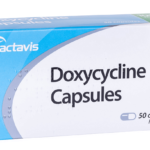Can I Buy UTI Antibiotics Online?

A urinary tract infection (UTI) refers to an infection of the urinary system. This type of infection can involve your urethra (a condition called urethritis), kidneys (a condition called pyelonephritis) or bladder, (a condition called cystitis). Your urine typically doesn’t contain bacteria (germs).
They are one of the most common types of infection and account for around 8.1 million visits to a doctor every year. The urinary tract can be divided into the upper urinary tract and the lower urinary tract. The upper urinary tract consists of the kidneys and the ureters, and the lower urinary tract consists of the bladder and the urethra.
Which antibiotic should be used to treat a UTI?
There are multiple types of antibiotics used to treat urinary tract infections (UTIs). Different treatments may be recommended in different areas of the country based on regional patterns of antibiotic resistance.
Most patients with an uncomplicated UTI will begin treatment without any special diagnostic test, although a urinalysis may be performed by taking a urine sample. In a urinalysis, the chemical components of the urine are determined, and the doctor may look at urine color, clarity, and view a sample under the microscope. A urine culture may be ordered, too, but is not always needed to start treatment. A urine culture can define the specific bacteria causing the UTI in more complicated cases or in the case of treatment failure.
Symptoms like burning and stinging while urinating will usually clear up within one day after starting treatment. Be sure to finish your entire course of medication. If symptoms are still present after 2 to 3 days, contact your healthcare provider.
More extensive diagnostic procedures or imaging tests like an X-ray may be required if you continue to have frequent UTIs.
What oral antibiotics are used to treat an uncomplicated UTI in women?
The following oral antibiotics are commonly used to treat most uncomplicated UTI infections (acute cystitis):
- nitrofurantoin (Furadantin, Macrobid, Macrodantin)
- fosfomycin (Monurol)
- sulfamethoxazole-trimethoprim (Bactrim DS, Septra DS, others)
Your doctor will choose your antibiotic based on your history, type of UTI, local resistance patterns, and cost-considerations. First-line options are usually selected from nitrofurantoin, fosfomycin and sulfamethoxazole-trimethoprim. Amoxicillin/clavulanate (Augmentin) and certain cephalosporins, like cefpodoxime, cefdinir, or cefaclor may be appropriate options when first-line options cannot be used.
Length of treatment for cystitis can range from a single, one-time dose, to a course of medication over 5 to 7 days. Kidney infections may require injectable treatment, hospitalization, as well as a longer course of antibiotic, depending upon severity of the infection.
Sometimes a UTI can be self-limiting in women, meaning that the body can fight the infection without antibiotics; however, most uncomplicated UTI cases can be treated quickly with a short course of oral antibiotics. Never use an antibiotic that has been prescribed for someone else.
Can a pharmacist give you antibiotics or do I need a prescription?
A pharmacist cannot give you antibiotics without a prescription from a doctor.
Can online doctors prescribe antibiotics?
Yes, online doctors are able to write prescriptions for antibiotics legally and safely online. Before writing you an antibiotic prescription, the doctor will diagnose your bacterial infection and learn your medical history.
Can I Buy UTI Antibiotics Online?
Yes, you can buy UTI antibiotics online with a valid prescription. Although, studies have shown that antibiotics are freely available for purchase on the Internet without a prescription, a phenomenon that encourages self-medication and low quality of care.
How long does it take antibiotics to start working for UTI?
Antibiotics are fast acting, some people feel symptom relief in a matter of hours. Generally you should start to feel better within 48 hours. If your symptoms get worse or do not improve within 48 hours it is likely you are not suffering from a bacterial infection. You should see the doctor for follow up treatment.





